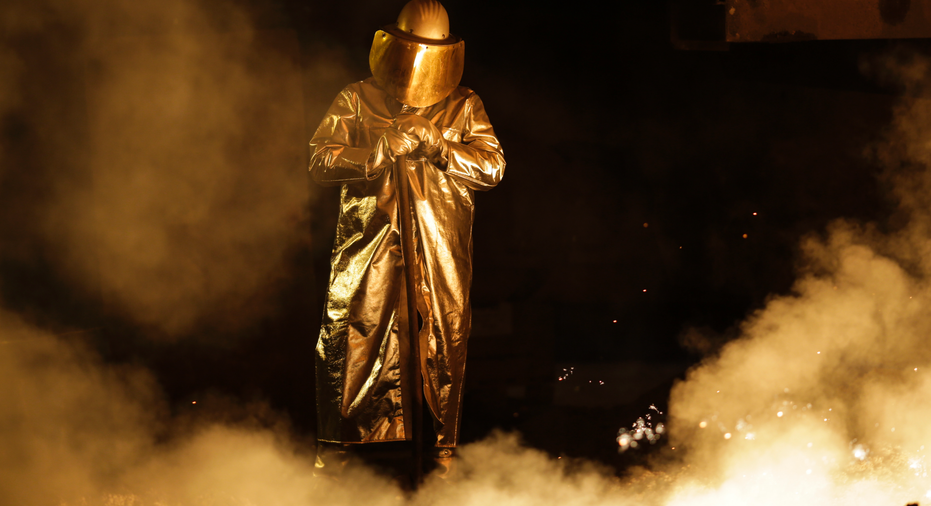Trump tariffs undermine trust in rules-based global commerce

GENEVA – The Trump administration's move to impose tariffs on countries like China undermines the rules-based system of global commerce that the United States itself helped create after World War II, experts and trading partners say.
Those rules are embodied and overseen by the World Trade Organization, which now sees its authority challenged and possibly diluted by the U.S. government's move to create tariffs without prior consultations — posing a threat to a trade architecture meticulously built up over decades.
"There is genuine systemic risk," said Joseph Francois, the managing director of the World Trade Institute at the University of Bern, Switzerland. "One could argue (I certainly do) that overall, the multilateral system has been a good thing for the U.S., and trashing it will not lead to a better outcome."
"It will lead to quite the opposite," added Francois, a former acting director of economics for the U.S. International Trade Commission who has worked with the WTO.
President Donald Trump is imposing new tariffs of 25 percent on imported steel and 10 percent on aluminum. He exempted some countries pending negotiations and gave the immediate green light for others, like China.
In a separate case, he also ordered tariffs on about $60 billion of Chinese goods, again bypassing WTO arbitration. But in a sign that he will still turn to the WTO when it suits his interests, Trump had his government file a complaint through the organization to try to stop China from allegedly stealing technology from U.S. companies that operate there.
In applying the steel and aluminum tariffs, Trump's main concern is that China has for years overproduced steel and aluminum, depressing prices globally and causing job losses in other countries, like the U.S. but also in Europe.
Usually, a country would file a complaint through the WTO to have another country rein in their industry. The risk now is that other countries might likewise sidestep the WTO and slap their own tariffs in retaliation, further undermining the WTO.
In the longer-term, that could create uncertainties for countries and businesses, which need to plan years into the future to invest in infrastructure or new operations.
Among the main concerns at the WTO over the Trump administration's move on steel and aluminum is that it is citing national security as a reason. The WTO allows a country to set up tariffs for that reason, but it is something of a taboo among countries to do so because if one country invokes national security, it increases the chance that others might as well.
WTO chief Roberto Azevedo on Friday encouraged countries to use the WTO to settle disputes.
"Actions taken outside these collective processes greatly increase the risk of escalation in a confrontation that will have no winners," he said.
Many countries went to the WTO on Friday to express concern about the U.S. move, with China and Russia specifically calling on the U.S. to follow WTO rules and uphold its commitment to the trade body.
The U.S. argues it needs a strong steel and aluminum industry to reinforce domestic production of warships, fighter planes and other national defense requirements. The European Union and other trade partners dismiss that as an excuse and say the U.S. merely wants to give its companies a boost.
Countries affected by the measures, like China, can under WTO rules retaliate with tariffs on U.S. goods worth a sum equivalent to the trading loss they would suffer from the U.S. tariffs. China has announced measures on $3 billion worth of U.S. goods.
The move on tariffs is only the latest case of Trump undermining the WTO. Ever since his presidential campaign he has threatened to pull the U.S. out of the body. On Thursday, he said the WTO was "a disaster for us" and insisted its arbitrations were "unfair" to the U.S.
Trump's government has also hindered the WTO in practice by delaying the appointment of new members to the seven-strong appellate body that rules on disputes. That makes it slower for the WTO to rule on cases.
But while the U.S. government's move on steel and aluminum weakens the WTO, its complaint against China's technology-poaching suggests it may yet rely on the body when convenient.
Ultimately, for the WTO, the key question is how other countries respond to the U.S., according to Francois.
"The system certainly needs updating, but just ignoring treaty commitments is akin to tearing up contracts you have signed," he said.



















